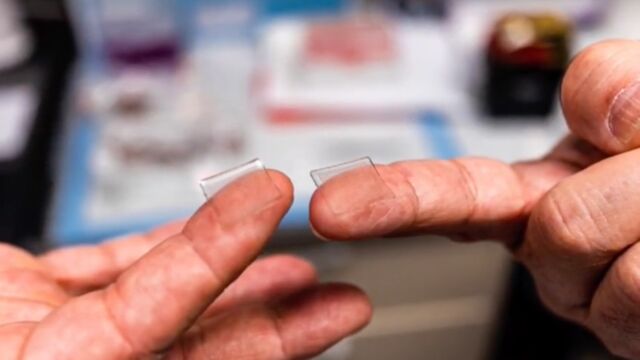The vaccine that is now seeking approval from the FDA for clinical trials comes our of Pittsburgh University's School of Medicine. It was first tested on mice and was shown to generate antibodies in quantities that are said to be enough to fight off the COVID-19 coronavirus, and the same vaccine and delivery method could be applied to other strains of the coronavirus as well.
Discover our latest podcast
The array, which is applied similarly to a band-aid contains hundreds of micro-needles that are made from a sugar substance actually containing the vaccine itself. Applied in its solid-state, as the array absorbs moisture from the skin the needles start to dissolve and releases the antigen into the skin.
The array would be applied to areas of the skin where the immune response is strongest. By applying antigens to these areas the vaccine is able to become much more potent and effective.
The vaccine itself uses pieces of viral proteins to create an immunity response much like the well-known flu shot. The new delivery method of the micro-needle array simply increases the potency and makes it much more effective.
Professor Louis Falo, a co-author of the new study stated:
We developed this to build on the original scratch method used to deliver the smallpox vaccine to the skin, but as a high-tech version that is more efficient and reproducible patient to patient,... And it’s actually pretty painless – it feels kind of like Velcro.
More research is needed before the vaccine is manufactured for masses. Clinical trials on humans are expected to start in the coming months.
This peer-review study titled PittCoVacc is the first study on a potential COVID-19 vaccine to be published. This gives us hope for the potential resolving of the current pandemic and may enable us to be better prepared for cases like this in the future.















